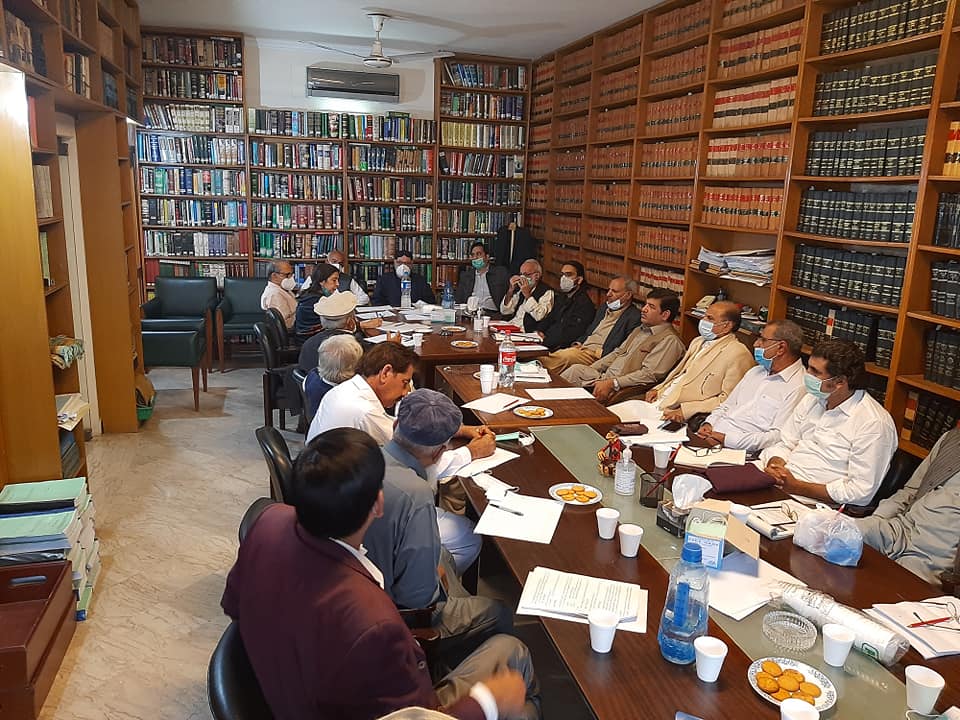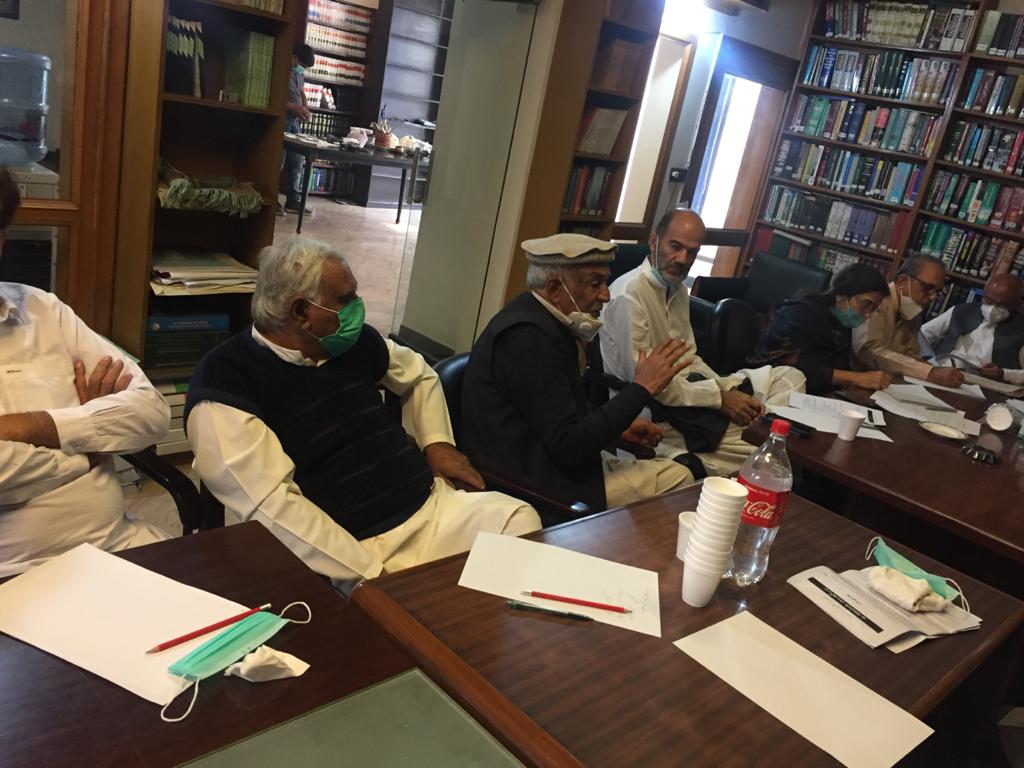

Lahore, 15th November 2020 – The unity of progressive political parties, and a wide assortment of people’s movements committed to class struggle, genuine democratic federalism, women’s emancipation, equal citizenship for Pakistani of all religious faiths, and an ecologically sustainable model of development is essential to address Pakistan’s deep seated political, economic and cultural crises and transform it from a national security to a people’s welfare state. This was the crux of a joint declaration issued by the Mazdoor Kissan Party (MKP), National Party (NP) and Awami Workers Party (AWP) at the conclusion of a two day summit of the respective party leaderships in Lahore to devise joint strategies for political action and ultimately unification of all progressive forces under a single, broad-based party platform.
Dr. Malik Baloch of NP, Yusuf Mastikhan of AWP and Taimur Rahman of MKP emphasized that the formation of the Pakistan Democratic Movement (PDM) represents a major step forward for Pakistan’s embattled democracy, and that the extension of an anti-establishment discourse to the historically pro-establishment Punjabi heartland gives credence to the established struggles of oppressed nationalities as well as leftist political parties more generally. The NP, MKP and AWP are committed to defense of the 18th constitutional amendment, NFC award, and other gains made towards genuine federalism. However, the anti-establishment narrative of the PDM must be deepened to centre the questions of class exploitation, women’s oppression, state-sanctioned exclusion of minoritarian religious communities, and ecological sustainability for the democratic struggle to reach its logical conclusion.
For decades the Pakistani state has sacrificed the needs of its people – for health, education, housing, employment and basic political freedoms – at the altar of so-called ‘national security’. This policy narrative has alienated the country from its neighbours and directly led to the rise of sectarianism and other forms of extremist violence. Meanwhile Pakistan’s economic planners pander to neoliberal orthodoxy while the economy becomes progressively more dependent on foreign imperialist countries as well as the international financial institutions (IFIs), even while the support of external patrons benefits the militarised state apparats and other oligarchic interests within the country.
Today, Pakistan’s working people face unprecedented economic hardship in the form of inflation and unemployment, while indigenous communities are being dispossessed in the name of ‘development’ which is devastating our natural eco-systems. The PIDA ordinance through which fishing communities around coastal islands in Sindh is simply the latest example of this attack on the livelihoods of working people. Land continues to be concentrated in the hands of feudal lords and real estate moguls. Meanwhile misogyny deepens in society with each passing day, young girls and women subjected to horrific patriarchal violence and more banal forms of discrimination and religious minorities live out every day in fear of their lives. Finally, ethnic peripheries like Balochistan, the ex-FATA regions, Giglit Baltistan and AJK remain deprived of political freedoms, while the dastardly practice of enforced disappearances and other forms of state repression get worse with each passing day.
It is in this context that a genuine progressive alternative is necessary to foment a broad popular front against the establishment-centric political-economic order. The NP, MKP and AWP vow to build an alternative around widespread land reform and redistribution of all productive assets. Through this joint struggle, popular forces can transcend neo-liberal economics, logics of dispossession and brazen class privilege, name and redress male domination, and include all of Pakistan’s ethnic-nations in shaping our cultural ethos, foreign and strategic policies, thereby hastening the transition to a genuinely democratic state and society, free from the overbearing influence of the military establishment.
